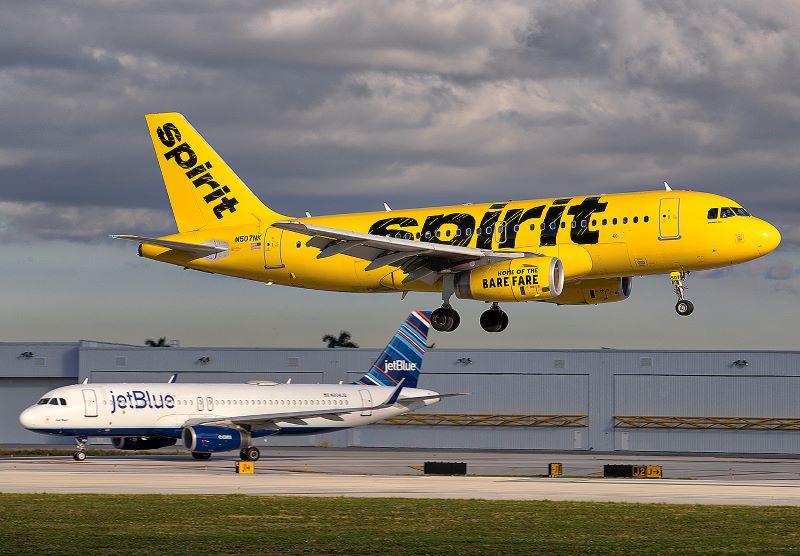
Now that a trial start date has been set, JetBlue sees no disruption to its timeline as it contests the U.S. Justice Department (DOJ) suit to block its acquisition of Spirit Airlines.
The jury-waived trial will begin on Monday, Oct. 16 and last no longer than four weeks. The date was confirmed by Boston-based U.S. District Judge William Young during a March 21 scheduling conference.
“We have always accounted for a DOJ lawsuit in our timeline to close the transaction in the first half of 2024, and our integration team continues to work according to this timeline,” a JetBlue spokesperson told Aviation Week.
JetBlue in July 2022 announced its proposed $3.8 billion acquisition of the Fort Lauderdale-based ULCC. Seven months later, DOJ filed suit to block the deal, calling the carriers “two of the most significant rivals today.”
Despite the pushback, which comes amid heightened scrutiny on industry consolidation under the Biden administration, JetBlue has formed a dedicated integration team of internal staff and external consultants intent on managing a dual focus on the general year ahead as well as the planned integration. In remarks made March 14, CEO Robin Hayes described a silver lining of sorts, with lengthy regulatory timelines giving the company more time to prepare.
“We want to execute really well in 2023 ... and we want to prepare for the merger with Spirit,” Hayes said. “So, what we did in our company is we’ve really separated out the responsibility of those things. We have a team that’s entirely focused on running 2023 and then we have a team that is focused on integration.” Hayes noted the team also has access to “people that you would know who have been through this—other U.S. mergers—in the last 5-10 years.”
Under the terms of its acquisition agreement, and in addition to prepayments, JetBlue began paying Spirit shareholders $0.10/share monthly in January, continuing through closing.
The first day of trial is scheduled to begin, in-person only, at 9 a.m. ET on Oct. 16 in the United States District Court for the District of Massachusetts.
DOJ is joined in its lawsuit by the Commonwealth of Massachusetts, the state of New York, and the District of Columbia.
